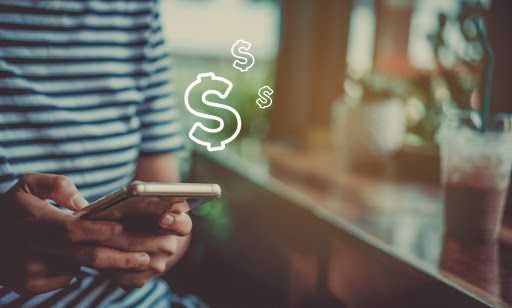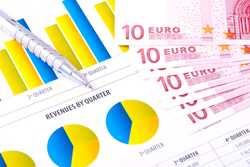What is Cash App & How Does It Work?

Our evaluations and opinions are not influenced by our advertising relationships, but we may earn a commission from our partners’ links. This content is created by TIME Stamped, under TIME’s direction and produced in accordance with TIME’s editorial guidelines and overseen by TIME’s editorial staff. Learn more about it.
We’ve come a long way from the era when we relied on gold and silver coins for the exchange of goods and services. In fact, we’ve come so far that we use digital or electronic wallets, meaning, mobile phone applications for financial transactions. A prime example of a digital wallet is Cash App.
In today’s world, in addition to making phone calls, searching for information, ordering food, and video-calling friends and family, we can send and receive money, stocks, or bitcoin through an application on a mobile phone.
Cash App is an app that allows you to do all the things I just listed. It was launched in 2013 by Block Inc., the same company that owns Square, a card processing service used by many small businesses. Block Inc. created Cash App, which allows you to bank through your mobile phone without the fees that usually accompany banking.
To use Cash App, you must first download the application on your mobile phone. If you want to pay someone, you need their phone number, email or a QR code to make the payment.
Sending and receiving money is completely free, and most payments are deposited directly into your bank account. As soon as you make a transaction, your balance will be updated immediately on your Cash App so you know the payment went through.
In addition to using Cash App to send and receive money, you can use it to send and receive stocks and bitcoin. You can also use Cash App at stores and at online retailers worldwide. To use the Cash App to pay at stores, you scan the store’s QR code with your mobile app and make the payment there. For online retailers, you select “Cash App Pay” at checkout to complete the transaction.
Cash App is available in the U.S. and the U.K. According to the Cash App website, when a user sends a payment between the U.K. or the U.S., Cash App will convert the payment from the origin currency to the destination currency based on the mid-market exchange rate at the time the payment is created.
Both adults and minors can use Cash App. If someone is under the age of 18 and would like to use the app, they will be able to. Users under 18 can get access to expanded Cash App features in the U.S. as long as they get approval from a parent or guardian. These features include direct deposit, bitcoin, and stock, although these last two features are optional with a family account available to anyone who is over the age of 13.
In addition to individuals, businesses can also use Cash App. The app Cash for Business was designed for small businesses and entrepreneurs. To connect with customers, you share your Cash App QR Code, $Cashtag (meaning, your Cash App username), or the email or phone number associated with your account. Your customers who use Cash App can pay you instantly.
You can create a Cash for Business account for free, and you will not need hardware to process business payments. Note, however, that there is a fee for business transactions. For example, if you run a coffee shop and use Cash App to sell a cup of coffee, the app will automatically deduct a 2.75% processing fee on each payment you receive to your Cash for Business account. The good news is that Cash for Business accounts do not pay fees for instant deposits to your checking account– you get access to your funds instantly at no additional charge.
The majority of Americans who don’t use payment apps say that a major reason for not using them is not trusting the apps with their money, according to a Pew Research Center Study conducted in July 2022.
Cash App is built on a secure platform using cutting-edge encryption and technology that detects fraud to make sure your data and money are secure. Regardless of whether you’re using public or private Wifi or data service, any information you submit is encrypted. That means your banking information is locked and securely sent to Cash App’s servers. In addition to encryption, the app uses security locks, including PIN entry, touch and Face ID, and it has fraud protection to protect you from unauthorized charges.
If you have a Cash Card, which is a physical debit card linked to your Cash App account, the money in your Cash App account balance is covered by the Federal Deposit Insurance Corporation (FDIC) through Cash App’s partner banks. The FDIC will cover eligible accounts up to $250,000 per Cash App customer in case of the failure of a partner bank. Note that fraud, Bitcoin, and investing balances are not covered by FDIC insurance.
In addition to sending and receiving money with Cash App and users who use Cash App, you can also make the following transactions:
Cash App is easy. Once you have downloaded the application, you must enter your information (phone number, email address, and your zip code). You don’t need a bank account to use Cash App. Without a bank account, you can add money to your Cash App balance by going to an associated retailer and depositing paper money in the store. You can also set up direct deposits to your Cash App balance.
You’ll be happy to hear that you can send and receive money without fees on Cash App. Additionally, there’s no fee to transfer money into your bank account. You are also not charged for international transactions. For payments to either the United Kingdom, the payment is converted based on the mid-market exchange rate at the time of the transaction. Your recipient will receive the funds in their local currency at no extra charge.
If you don’t enter your social security number, Cash App lets you send up to $250 within any 7-day period and receive up to $1,000 within any 30-day period. When you add your full name, date of birth, and the last 4 digits of your social security number, you can increase these limits.
You can pay anyone instantly. And, if you’re the one receiving the payment, you can deposit directly into your bank. Standard deposits are free and arrive within 1-3 business days, and instant deposits are subject to a 0.5% -1.75% fee (with a minimum fee of $0.25) and arrive instantly to your debit card.
Alternatives to Cash App include PayPal, Venmo, and Zelle. A recent Pew Research Center Study conducted in July 2022 found that PayPal is used by the majority of U.S. adults (57%), followed by Venmo (38%), Zelle (36%), and Cash App (26%). Each of these has different limits and slightly different services.
The beauty of Cash App is that you do not need a bank account to use the service. All you need is a phone number or email address and your zip code.
There are ways to add money to your Cash App balance without a bank account – for example, you can go to a retailer associated with Cash App and deposit paper money, which will be applied to your Cash App balance.
If you make a payment with Cash App Pay and your balance doesn’t cover the payment, then the money will be taken from a linked debit card. If you do not have a linked debit card or the balance on the linked debit account does not cover the cost of the transaction, the payment will be declined. The good news is that you won’t be charged an overdraft fee!
You can save money on the Cash App, using the “Money” tab. The app also allows you to set savings goals and track against them. If you have a Cash Card, you can turn on the feature called “Round Ups” and save change from your purchases. That way you can save without even noticing that you’re putting money aside.
Yes, you can send money to anyone who has a phone number or an email address. They will receive an email or notification that will prompt them to download Cash App and claim their money. However, if they don’t claim their money within 14 days, the money will be returned to the sender.
No, once you buy bitcoin through Cash App, you can use Cash App as your bitcoin wallet. In your Cash App wallet, you can view your bitcoin balance, and buy or sell at any time.
The information presented here is created by TIME Stamped and overseen by TIME editorial staff. To learn more, see our About Us page.



